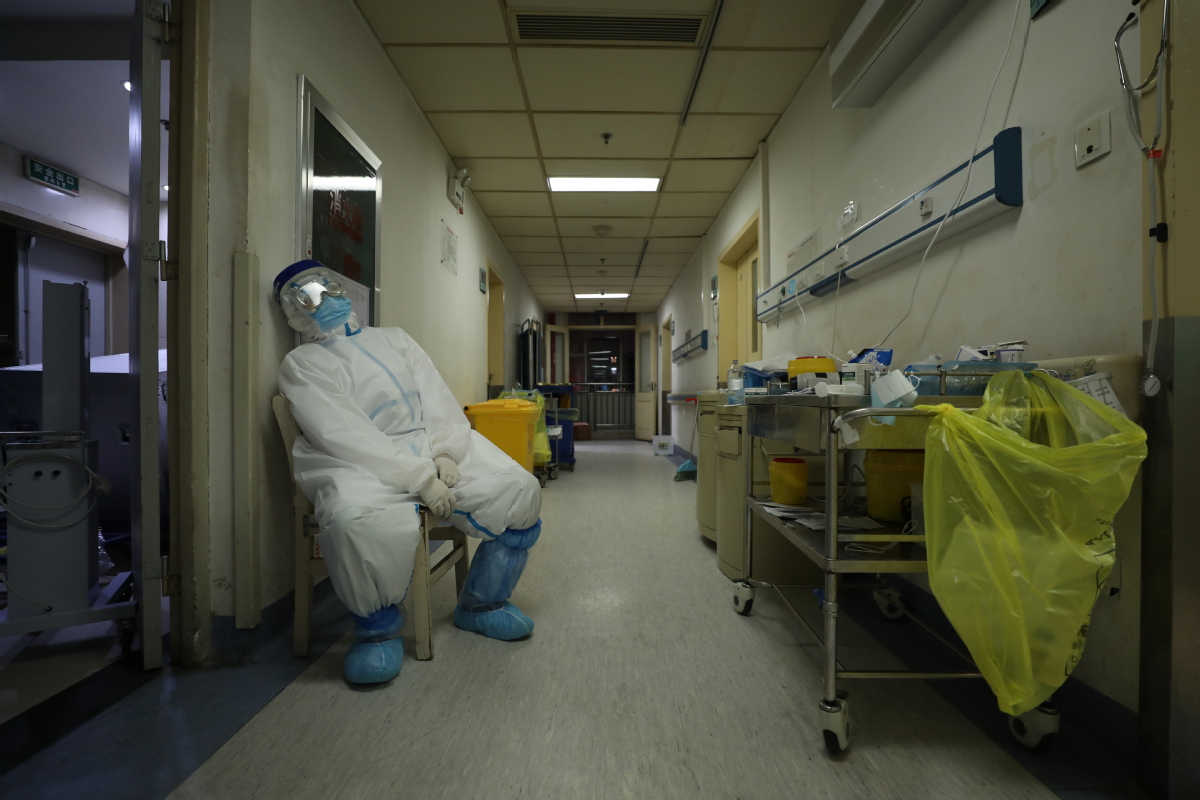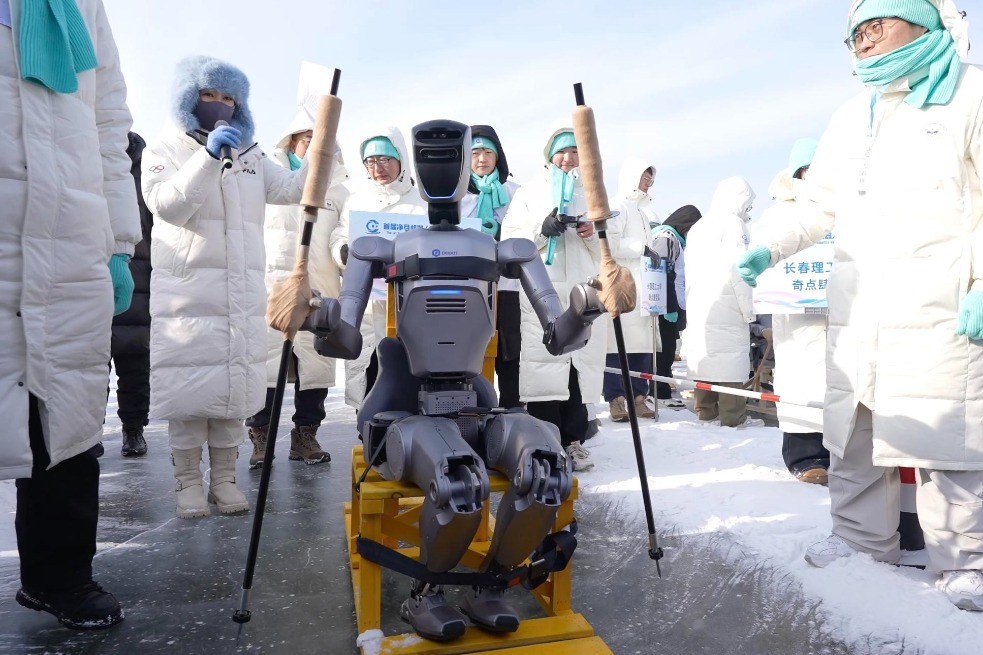Psychiatrists help with a good night's rest


In addition to insomnia, symptoms of anxiety and depression include a fast heart rate, poor breathing, fatigue and gastrointestinal discomfort, said Chen, a chief doctor dispatched to Wuhan from the Changning District Mental Health Center in Shanghai.
He works with another psychiatrist and two nurses in the counseling room at the Wuhan hospital, where many patients in critical condition have been treated.
On Jan 26, the National Health Commission issued a guideline requiring provinces and cities to provide counseling and intervention services for people affected by the pandemic.
Feng Qiang, a psychologist from Shanghai East Hospital who is working in Wuhan, said stress among doctors and nurses is also the result of irregular working hours and having to stay alone in a hotel room when they are not on duty.
"Some people also develop a strong fear of the virus and become over-alert, while others feel that it is everywhere and dare not touch anything," he said.
To handle stress, psychologists first help people identify their negative emotions, tell them to vent their feelings, and teach them how to relax.
They have also suggested that some doctors and nurses stop working and have sufficient rest.
During the outbreak, psychologists are providing counseling for those who are stressed, prescribe them medicine and tell them how to breathe properly, relax their muscles and meditate.
Chen's team has also used a type of physiotherapy called transcranial magnetic stimulation. During a 20-to 30-minute session, an electromagnetic coil is placed against the patient's scalp, with magnetic fields used to stimulate nerve cells in the brain.
























